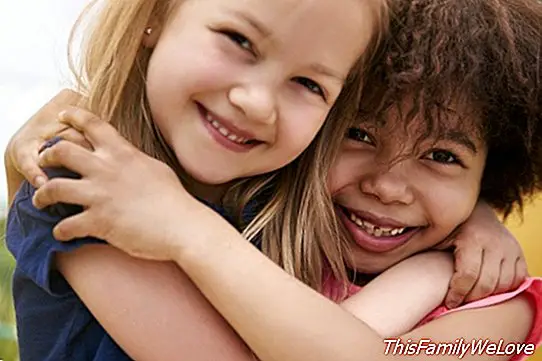Friends: why do we need them so much?

Few doubt that friendship is a good for the person. However, the modern rhythms of life, the rise of new technologies and changes in social customs are endangering those relationships between equals that are so beneficial for the person. And if they are for the person, the benefits necessarily result in the family.
The friends they are very important in our life, but Why do we need them so much? Caring for friendships and encouraging our partners and our children to do so guarantees that the family will live with more tranquility and joy.
The greatness of friendship
Friendship: "Personal affection, pure and disinterested, shared with another person, born and strengthened with the deal." This is how the Royal Academy of the Language in its Dictionary defines this precious concept for a person. The friends they are part of the relaciomes proper of the human being, the friendship supposes generosity, pure delivery to the friend. It requires close and habitual treatment, it needs to be watered so as not to wither.
But confident in the greatness of friendship, in the generosity of friends, we often relegate their care to the few free spaces of our tight schedules. We know, and possibly we are not mistaken, that the good friend It will always be there, even if we do not treat it in a usual way. But we feel that we are not enjoying that friendship to the degree that we should.
Also young people, despite apparently being full of friendsSomething similar happens to them. Time is consumed in a host of acquaintances with whom they relate through social networks and do not reserve spaces to deal with real depth to those few people who make up the space of friendship understood in the strict sense.
The importance of caring for friends
And yet, stuck in this maelstrom of everyday life, sometimes we do not realize the reasons that make these friends important, that are necessary to shape the stability of our days, that help us share joys and worries, that we they help when necessary, they speak to us without judging, and they correct us with the greatest affection when we have made a mistake so that we can get out of our mistake.
Not taking care of friends is bad because, without realizing it, we are neglecting ourselves. If the mirror in which to look at us becomes opaque and stops reflecting us, we will no longer know who we are.
Friendships begin from our earliest childhood although the start of our life in society is not marked by friends. Experts calculate that Until three or four years old, children do not have a true interrelation, that is, they do not share games but simply play the same. From that moment, friendships will develop, in most cases, based on affinities of character and common interests. Children are friends who are neighbors, those who are targeted to the same extracurricular, those who are both very calm, or very nervous.
But this "childhood friends" have a markedly egoistic componenta: if the friend starts to bother or simply likes other games, he stops being a friend and is immediately replaced by the next one. Therefore, in the early stages of childhood, the list of friends often fluctuates as much as the changes in the desk.
Friends of childhood
In the Primary stage, the circumstance is similar, however, the bonds are strengthened because it is shared for a long time and it is even common for friendships to have a decisive influence on aspects such as shared hobbies. Even so, nothing says for now that these are going to be the friends of maturity. But the usual treatment can be consolidated in adolescence and youth.
However, after about twelve years, relationships with friends go through as many ups and downs as the rest of adolescents' lives. Those who are today best friends and give their lives for the other, become bitter enemies overnight for some altercation that they understand as "intolerable betrayal." And some time later a new twist brings the story back to the beginning.
The new friends
When the young man begins to take his first steps in the conformation of his adult stage will be when he forges his best friendships, and come from behind, from the school stage, whether new. Here, if friendships are taken care of, the first candid confidences of certain themes will appear, and if the friendships are for real, the opportune advices will also arrive, that do not always coincide with those that one wants to listen to. Friends will no longer be a refuge for parents to flee, as in adolescence, but as equals with whom to share experiences.
With the courtship and marriage will come new friends, those of one and those of another, plus the common ones. And the children will open the ban to the parents of friends and more relationships.But it will be at this stage where we run the most risk of losing true friendships because there is not enough time or focus too much attention on circumstantial and temporary friendships.
María Solano




